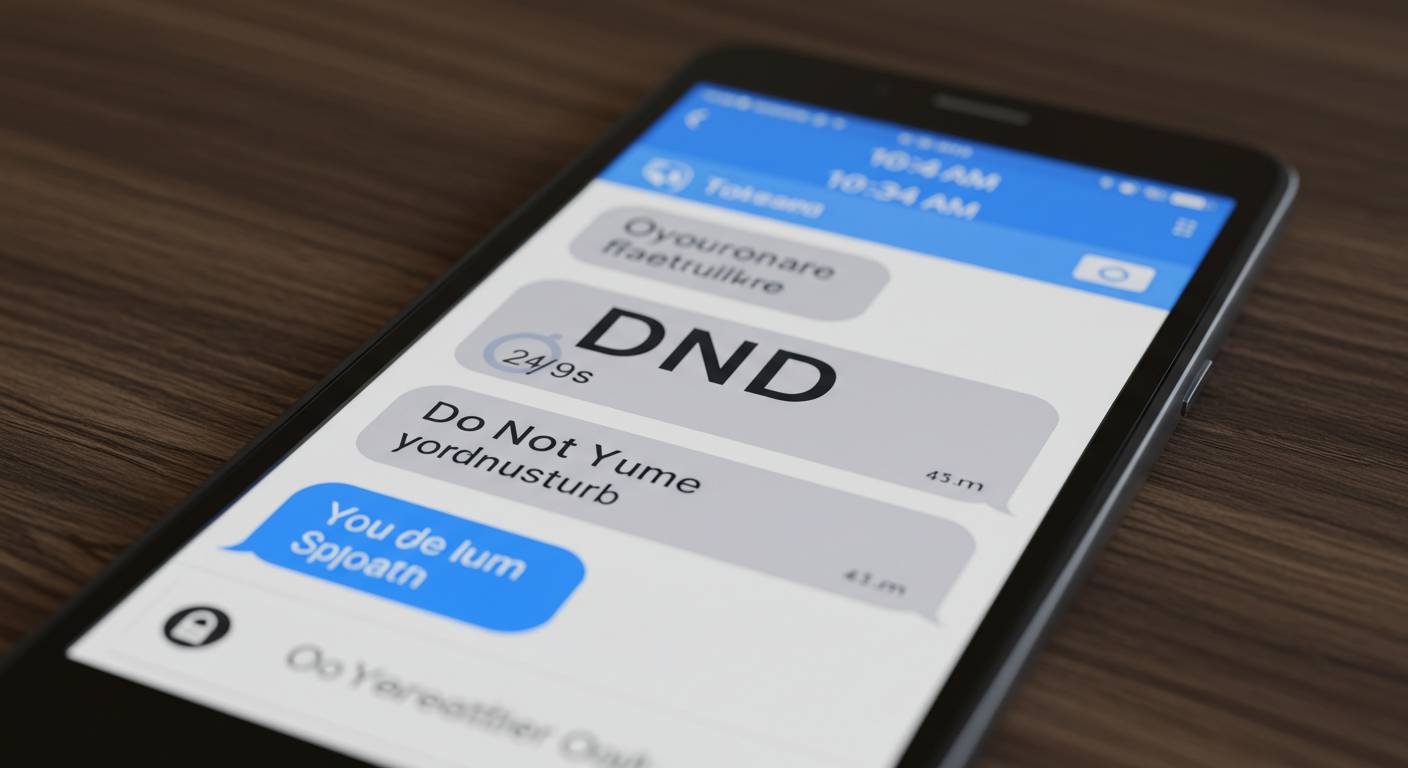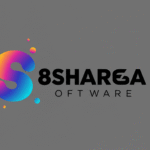There’s somethin’ quietly powerful ‘bout those three little letters — D, N, and D — that you see poppin’ up all over your texts, chats, and social media.
Maybe you spotted it last night while scrolling through your phone in a dimly lit room, or maybe you stumbled upon it in an email at work and thought, “Wait, what does this even mean here?” See, the world of digital communication has this weird way of breeding shorthand that can both confuse and connect us, sometimes all at once.
Before smartphones got us hooked in the 2000s, folks would sit down, maybe on a rotary phone or a typewriter, crafting messages that were full sentences.
Now? We’ve got acronyms flying left and right, with DND sitting somewhere between a polite signal for “Hey, don’t bother me” and a nostalgic shoutout to the fantasy realms of Dungeons & Dragons — that tabletop game from the 1970s that’s more alive than ever in online gaming communities.
So yeah, DND’s got layers, like an onion or maybe an elaborate spell in a wizard’s book. Let’s unravel it together.
What Does DND Mean in Texting? The Two Main Faces
When you see DND in digital chats, it’s usually wearin’ one of two hats:
- Do Not Disturb: This is by far the most common use in modern texting, social media, and chat platforms. It’s a gentle (or sometimes firm) way to say, “I’m not up for talkin’ right now.” Maybe someone’s grinding through work, meditating, or just wants to binge-watch without interruptions. It’s your phone’s silent mode come to life in words.
- Dungeons & Dragons: For gamers and RPG fans, DND is shorthand for that iconic role-playing game. When you see it in gaming forums, online communities, or chats about fantasy stories, it’s less about silence and more about rolling dice and epic quests.
Beyond These? Nope, Mostly Just These Two.
Sometimes folks get it mixed up or think it’s something rude — like being ignored on purpose — but nah, context is king.
If someone texts “DND” in a group chat during work hours, they probably wanna focus or keep distractions away. If it’s in a gaming thread, they’re likely talkin’ about the game.
Why DND Matters in Digital Communication: The Politeness & Tone Dance
Here’s where things get spicy. DND can be polite or come off curt depending on how it’s used. It’s kinda like saying “I’m busy” in person — if you say it with a smile, it’s cool; if you say it while stormin’ out, it’s a whole different vibe.
In professional settings, people might write out “Do Not Disturb” fully or add a quick “Thanks for understanding,” softening the tone. In casual texting, it’s more like “DND, talk later!” or just dropping “DND” as a quick heads-up. It’s super important to notice the tone behind those letters.
Cultural variations also come into play. For instance, Spanish speakers often use No Molestar instead of DND. Different regions, different slang, but the same idea: respect the person’s space.
When and Where Do People Use DND? Let’s Break It Down
Digital communication is a jungle with tons of spaces, and DND pops up in quite a few:
- Texting and Messaging Apps: WhatsApp, iMessage, Telegram — you name it. Someone might hit “DND” to say, “Leave me alone for now.”
- Social Media: Instagram DMs, Twitter chats, even LinkedIn sometimes. If someone’s swamped, DND is a neat, shorthand way to flag that.
- Professional Settings: Slack channels, Teams chats, emails — especially when you wanna avoid looking rude but gotta focus on a deadline.
- Gaming Communities: Here, DND can mean either “Do Not Disturb” if the player is AFK (Away From Keyboard) or a mention of Dungeons & Dragons campaigns.
- Online Dating Apps: It might be used less here, but if someone’s not ready to chat, a polite “DND for a bit” works better than ghosting.
Confusing DND with Other Acronyms? Let’s Clarify
You’ve probably seen BRB (Be Right Back), AFK (Away From Keyboard), and GTG (Got To Go) tossed around too. They’re all cousins in the family of quick digital exits, but each has a vibe:
- BRB: Temporarily stepping away but coming back soon.
- AFK: More common in gaming, means literally away from the keyboard.
- GTG: Leaving for good (or a longer while).
- DND: Staying online but not to be disturbed.
Knowing these helps avoid awkward pauses or confusion when chatting.
The Origin Story: How DND Evolved From 1970s Tabletop to 21st Century Texting
The abbreviation DND traces two different historical paths:
- The game Dungeons & Dragons kicked off in the 1970s, creating a massive cult following. The abbreviation stuck as shorthand in RPG circles, especially as the game blossomed into video games, livestreams, and online forums.
- Do Not Disturb signs have been around for ages in hotels and offices, but with the smartphones explosion in the 2000s, it took on a fresh life as a digital status. Now, every chat platform and phone has some form of DND mode — and typing those letters became shorthand among friends and colleagues.
Regional & Language Equivalents of DND You Might Not Know
Digital acronyms love to shape-shift across cultures:
- In Spanish, No Molestar is the go-to phrase, often abbreviated as NM or sometimes just expressed fully.
- In French, Ne Pas Déranger (NPD) carries the same meaning.
- Asian chat slang sometimes uses emojis or other visual shortcuts instead of letters.
Knowing this helps if you’re messaging someone across borders, avoiding unintended offense.
When DND Isn’t Rude: Understanding Online Communication Etiquette
There’s a misconception that telling someone “DND” is ignoring them. Nope. It’s like closing the door politely. Some tips to keep it friendly:
- Add a quick note: “DND for a bit, catch ya later!”
- Use in contexts where it makes sense (work focus, gaming, resting).
- Avoid dropping DND abruptly in personal or emotional chats.
Remember, tone is hard to read in texts, so clarity helps avoid misunderstandings.
Alternatives to DND: When You Wanna Switch It Up
Sometimes DND feels too formal or blunt. Here are other ways to say you’re off the grid for a while:
- BRB — “I’ll be back soon.”
- AFK — “Away from keyboard,” mostly gaming lingo.
- GTG — “Got to go,” informal departure.
- Busy or In a Meeting — More straightforward but less acronym-y.
Mixing these up keeps your digital convos fresh and polite.
How Smartphones & Notifications Shape the DND Culture
Smartphones introduced the idea of toggling your status quickly. The ability to silence notifications means DND isn’t just about messaging, but a whole lifestyle shift — respecting boundaries in a world obsessed with being “always available.” This shift influences work-life balance, social expectations, and even mental health.
The Role of DND in Online Dating, Social Media & Gaming
- Dating Apps: Saying “DND for a bit” is a gentle way to pause conversations without ghosting, signaling respect and honesty.
- Social Media: People use DND statuses during digital detoxes, mental health breaks, or just to avoid toxic comment storms.
- Gaming: Besides being a game name, DND in gaming chats often marks when a player’s busy or taking a break, especially in role-playing sessions.
DND and Professional Messaging Etiquette: How to Use It Right
Workplace chats can be a minefield. DND here means you’re focusing, but you gotta balance politeness:
- Use full phrases sometimes: “Do Not Disturb – focusing on report, will reply after 3 PM.”
- Set status messages on Slack, Teams, or Zoom instead of just typing “DND.”
- Respond quickly once you’re back to show respect for others’ time.
Real-Life Stories: How Different Cultures Celebrate the Arrival of DND in Daily Life
Okay, maybe not the arrival of DND itself, but how people embrace the concept of “Do Not Disturb” in their lives reflects cultural values:
- In Japan, respecting silence and personal space is huge — so digital DND is often respected without questions.
- In Latin America, folks might joke about ignoring phones but still expect rapid replies, so “No Molestar” is used with a wink.
- Gaming communities worldwide often host virtual “DND nights,” where everyone signs off together for a mental health break — showing solidarity.
Practical Advice: How to Use DND Messages Creatively & Personally
If you wanna stand out while signaling DND, try these tips:
- Personalize your DND message with a hint of humor: “DND – recharging my brain cells, leave a message after the beep!”
- Use emojis to soften the tone — a sleeping face 💤 or a door 🚪 can say “Do Not Disturb” without words.
- For close friends, be poetic or playful: “DND in my dream realm, catch you on the flip side!”
- In professional emails, add expected response times to manage expectations.
Final Thoughts
At first glance, DND might just seem like another annoying acronym cluttering our screens. But peel back the layers, and you find it’s a symbol of respect — for focus, privacy, and personal boundaries in a hyper-connected world. It’s a gentle reminder that even in our buzzing digital lives, it’s okay to pause, recharge, and reemerge refreshed.
Whether you’re rolling dice in a Dungeons & Dragons campaign or just needing a breather from nonstop notifications, knowing when and how to use DND enriches how we communicate. So next time you type or see DND, remember — it’s not just letters, it’s a little sanctuary in text form.
What’s your take on DND? Ever used it in a funny or memorable way? Drop your stories or favorite DND messages below — let’s keep this chat going!
Frequently Asked Questions
dnd text meaning
DND in text means “Do Not Disturb,” indicating that someone does not want to be interrupted or disturbed.
what does dnd mean text
In text, DND stands for “Do Not Disturb,” used to show unavailability or the need for privacy.
dnd stands for
DND stands for two main things: “Do Not Disturb” in communication and “Dungeons & Dragons” in gaming.
dnd meaning in chat
In chat, DND usually means “Do Not Disturb,” signaling the person is busy or unavailable to reply.
what do dnd mean
DND means “Do Not Disturb,” a polite way to ask others not to interrupt or distract you.











